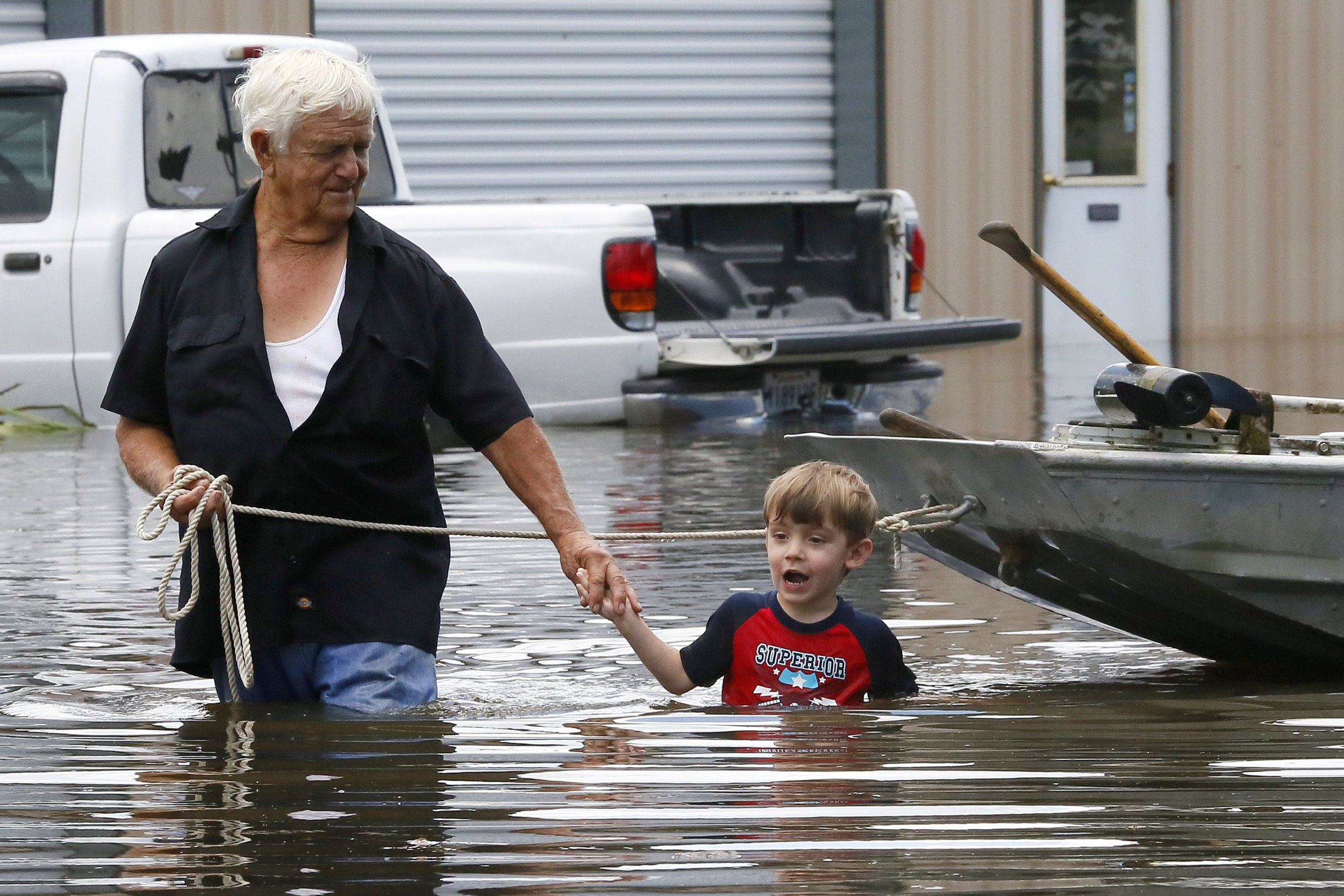
This article originally appeared in Eric Holthaus's newsletter. Read the orignal article.
In my small corner of the internet, this week has been dominated by the Louisiana floods. Specifically, people seem obsessed with the question of how much attention we should pay to the ongoing disaster there. My simple answer: Our attention to tragedies like Louisiana reflect our values and priorities as a society. Slow-onset disasters in places that are already seen by some as lost causes are easily forgotten.
Had the Louisiana flood been caused by hurricane, it would have been among the 10 costliest in U.S. history . But the storm didn't have a name, so it didn't make the news right away. In that sense, Louisiana is not much different than the roughly 100 people that die each day in America from gun violence, or the astronomical examples of heartbreak in Syria, or the millions of people still recovering from disasters of all kinds around the world. There is no way to fit updates on each of these nameless tragedies into our daily routine, so we block them out. To not block them out is to confront your personal privilege constantly. To confront your privilege is realize the status quo must change, and change is hard. I'm not trying to be preachy—I'm guilty of the same thing every day.
Now that the national media is covering the story in Louisiana, the spotlight has turned to President Obama, spurred by a heartfelt call for help from the local paper, the Baton Rouge Advocate . The White House has announced a plan for Obama to visit Baton Rouge on Tuesday. The Washington Post 's Chris Cillizza theorizes that Obama didn't want to travel sooner to Louisiana to comfort families faced with catastrophic loss because he (Obama) felt like he could be more useful from afar, without bringing national politics into the aftermath of a tragedy.
But Obama has often played the role of "comforter-in-chief" during his presidency, notably just two months ago in Orlando , where he arranged a visit just four days after the worst mass shooting in US history. Obama will be visiting Louisiana 10 days after the rains peaked. Though logistics are tighter in a flood zone, the Louisiana governor has repeatedly said the President is welcome. (Donald Trump, for his part, visited on Friday, and Hillary Clinton is also expected early next week .)
Words matter. And since Obama has staked a big part of his legacy on climate change, he owes it to the victims of the flooding in Louisiana, and the potential victims of future climate-related disasters, to address the clear and present threat of climate change directly in Louisiana. The President not only has the ability to improve the lives of the victims of this tragedy, by motivating attention and donations to help their plight, but to save countless future lives as well. To intentionally avoid this responsibility is unforgivable. To be a true leader, you have to change the status quo; when you're trying to lead on climate you have to change the status quo much faster than "normal" politics might say is possible. (And yes, I know obstructive climate deniers in Congress are holding back change. To that, I'd say: Figure it out. If the President really believes "our children's future depends on our action", as he repeated in a recorded weekly address at the height of the Louisiana rainstorm, he'd have had a much less mixed record on climate.) But, it's never too late—until it is.
When no-name storms have the ability to become 500-year scale disasters, we should know we've reached a new meteorological era. These storms will continue to happen more and more frequently unless our leaders stop worrying about the incremental battles of yesterday, and start building a brand new tomorrow as quickly as possible.
Eric Holthaus is a meteorologist who has written about weather and climate change for Slate, the Wall Street Journal, Quartz, FiveThirtyEight, and Pacific Standard. He's also the host of the climate-focused podcast, Warm Regards. Follow him on Twitter @EricHolthaus
Uncommon Knowledge
Newsweek is committed to challenging conventional wisdom and finding connections in the search for common ground.
Newsweek is committed to challenging conventional wisdom and finding connections in the search for common ground.
About the writer
To read how Newsweek uses AI as a newsroom tool, Click here.








